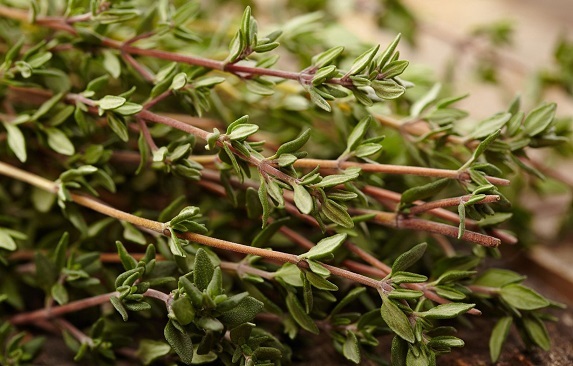South Korean Researchers Find That Thyme Extract Shields Lungs from Air Pollution Damage
Nikhil Prasad Fact checked by:Thailand Medical News Team Nov 10, 2025 3 months, 2 weeks, 1 day, 23 minutes ago
Medical News: Thyme’s Natural Power May Protect Lungs from Airborne Toxins
A new study from researchers at Gyeongsang National University, Korea University, Nutracore Co. Ltd., Hongsamdan Co. Ltd., and Daegu Haany University has revealed that thyme leaf extract may help protect the lungs from damage caused by fine air pollution particles known as PM2.5. These microscopic pollutants, often produced by vehicles and industrial emissions, are small enough to penetrate deep into lung tissue and trigger inflammation, oxidative stress, and long-term respiratory issues. The research offers a glimpse of hope that a simple herbal compound could strengthen the body’s natural defenses against air pollution–related lung injury.
 South Korean Researchers Find That Thyme Extract Shields Lungs from Air Pollution Damage
South Korean Researchers Find That Thyme Extract Shields Lungs from Air Pollution Damage
This
Medical News report details how scientists tested the effects of thyme (Thymus vulgaris L.) extract on mice exposed to PM2.5 particles. Over ten days, the mice received different doses of thyme extract, which was compared with dexamethasone—a common anti-inflammatory drug used to treat lung inflammation. The goal was to see whether the natural extract could reduce lung inflammation, prevent tissue damage, and support healthy mucus production.
Study Design and Key Observations
Male Balb/c mice were exposed to particulate matter through their nasal passages to simulate real-world air pollution exposure. The group that received thyme extract showed remarkable improvements compared to those exposed to PM2.5 alone. The extract significantly reduced lung congestion, inflammation, and oxidative damage. Mice treated with thyme extract had fewer immune cells invading their lungs and lower levels of inflammatory substances such as TNF-α and IL-6. These results show thyme’s strong anti-inflammatory properties, though its effects were slightly milder than dexamethasone.
Antioxidant and Protective Effects
Fine dust particles can cause oxidative stress, producing reactive oxygen species (ROS) that damage cells. The study found that thyme extract boosted antioxidant enzymes like catalase and superoxide dismutase while reducing harmful byproducts like lipid peroxidation. It also helped normalize key signaling pathways involved in inflammation—namely NF-κB, MAPK, and PI3K/Akt—which play crucial roles in lung tissue damage.
Mucus Regulation and Lung Healing
Interestingly, thyme extract showed a unique benefit that dexamethasone lacked—it balanced mucus production. While PM2.5 exposure triggered excessive mucus buildup in the lungs, thyme extract reduced mucus overproduction while still supporting healthy secretion needed to expel toxins. This suggests the herb not only protects lung tissue but may also help clear pollutants more effectively.
Safe and Promising for Future Use
The study confirmed that thyme extract caused no liver toxicity and maintained normal body weight in treated mice, unl
ike dexamethasone, which reduced body weight over time. The researchers concluded that the natural extract provides a safer, multi-targeted approach by reducing inflammation, neutralizing oxidative stress, and supporting respiratory cleansing mechanisms.
Conclusion
The researchers concluded that thyme leaf extract could serve as a powerful, natural protector against air pollution–induced lung injury. By reducing oxidative stress, inflammation, and mucus buildup while promoting healthy lung function, thyme may emerge as a valuable herbal supplement for respiratory health. Its combination of safety, antioxidant potential, and expectorant properties makes it a compelling alternative to steroid drugs for long-term respiratory protection.
The study findings were published in the peer-reviewed journal Antioxidants
https://www.mdpi.com/2076-3921/14/11/1343
For the latest on Herbs and Phytochemicals, keep on logging to Thailand
Medical News.
Read Also:
https://www.thailandmedical.news/articles/herbs-and-phytochemicals
